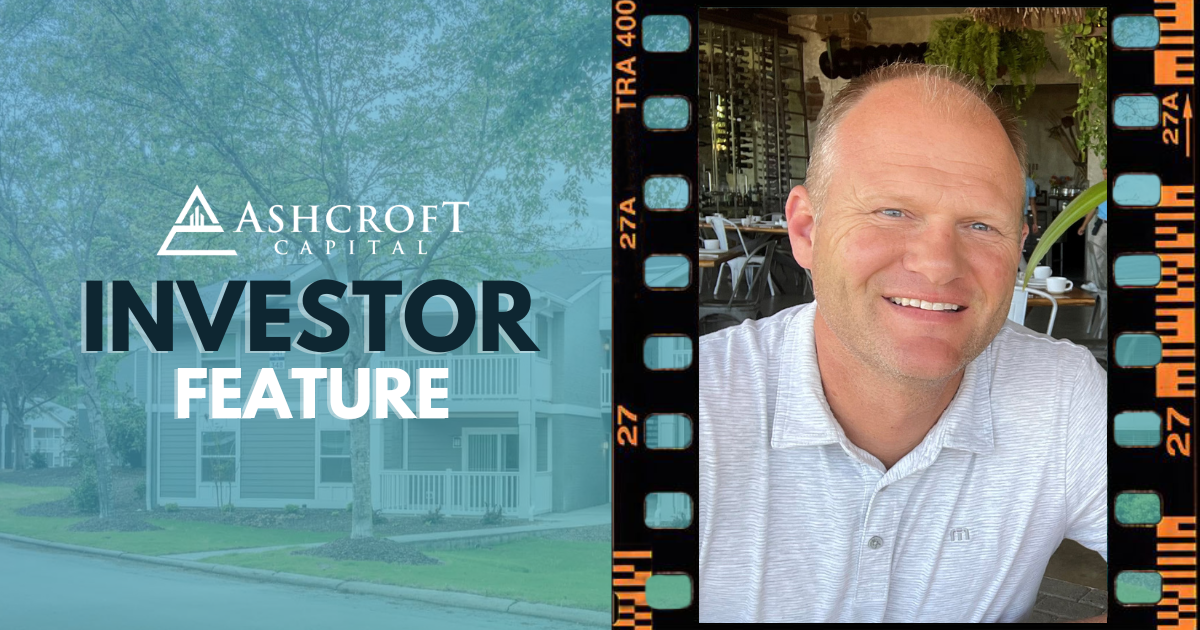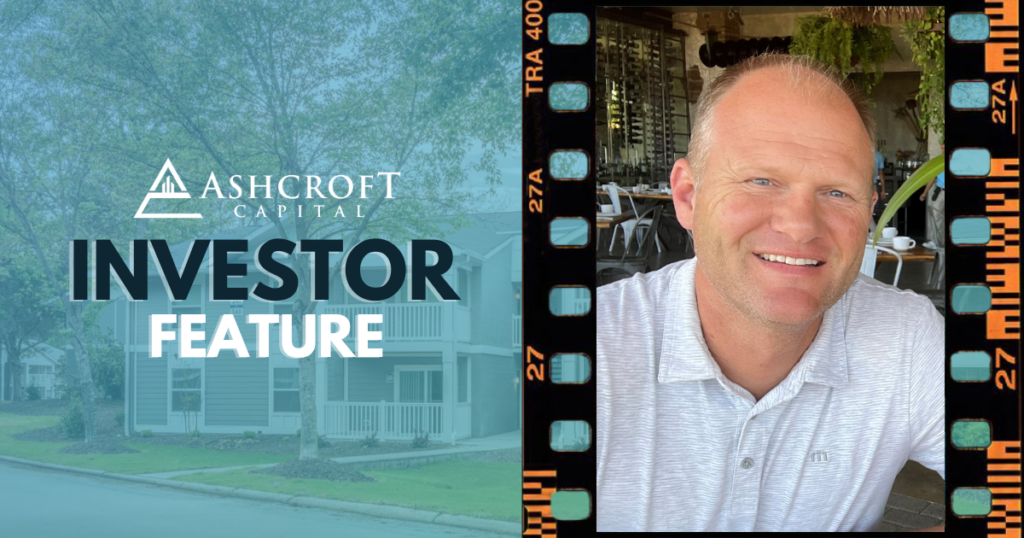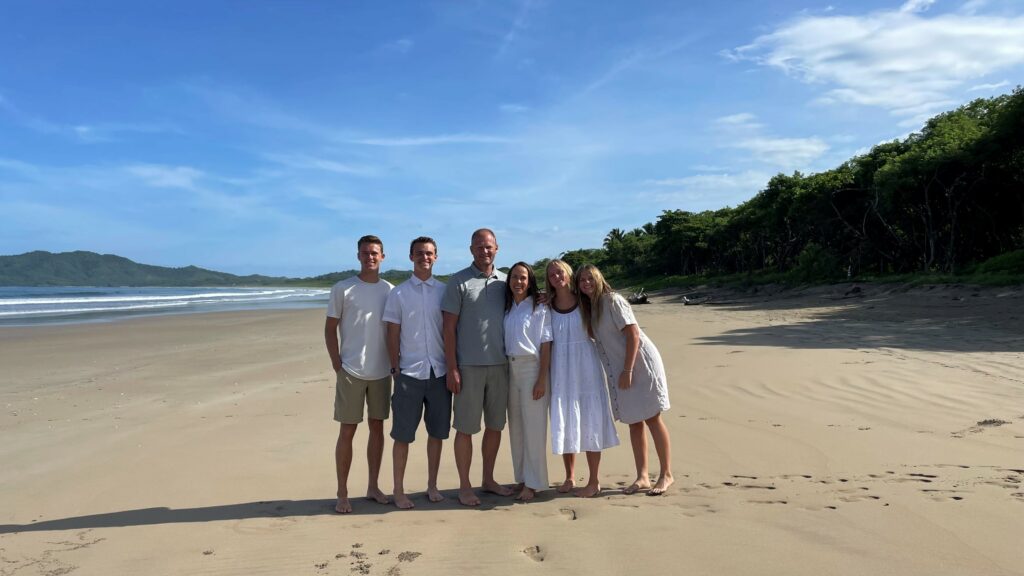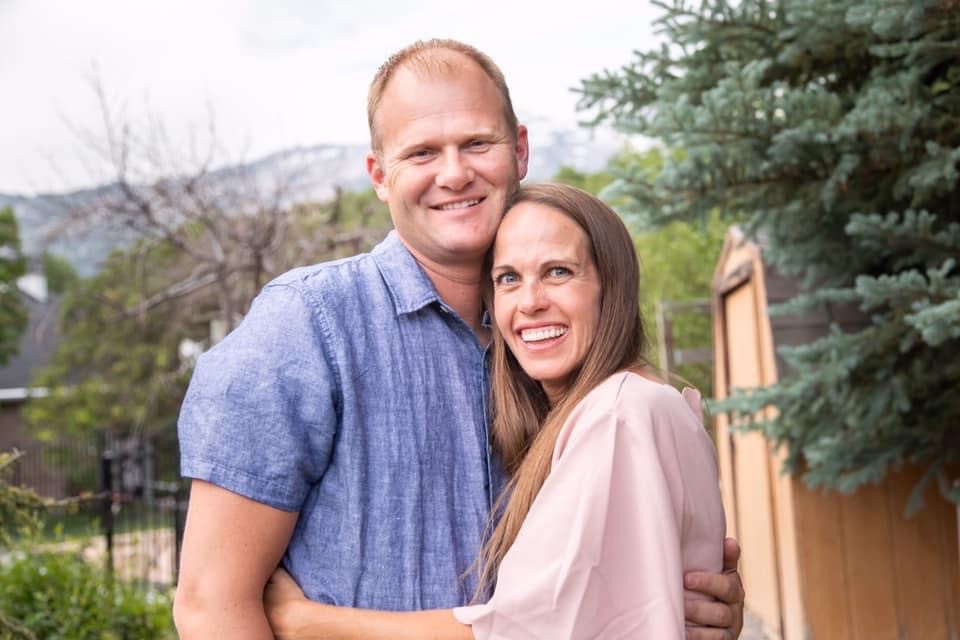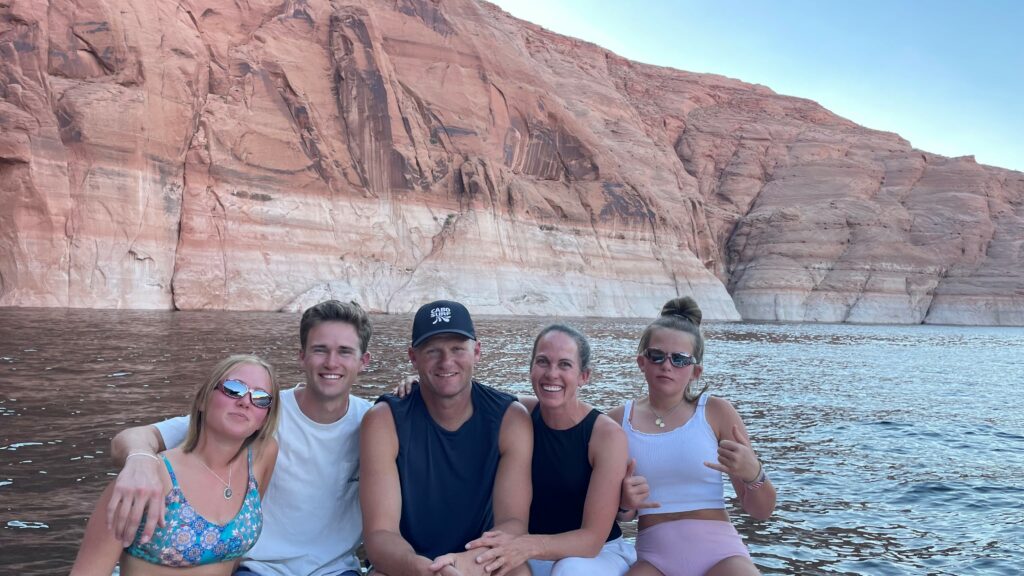February 8, 2024
“I was tired of watching my net worth go up and down with the stock market, and I had the realization that I should monetize it––have my money pay me.”
Forty-eight year old Scott Rasband is planning his next trip to Costa Rica with his wife and four kids rather than obsessing over his finances. Savvy career choices and a new real estate investment strategy have positioned Scott for early-morning surf lessons instead of waking up to market reports.
After 15 years of working his way to the top of the medical device industry, Scott Rasband had an epiphany.
“I realized that being in senior leadership was where I thought I wanted to go, but it was actually endless traveling, and your time is not your own. I had to ask myself what I really wanted to do with my life.”
Cooking Up a Better Way to Live
That’s when he transitioned into owning a Chick-fil-A franchise. “I started all over with a Chick-fil-A eight years ago, and it’s been the best decision I’ve ever made. The money’s still great, and what I love about it most is that I get to employ a hundred people, have influence over their lives, and serve them and the community.”
After seeing his net worth rise to about $4 million (and sometimes fall along with the market), Scott decided he needed to develop an investment strategy that would better protect his net worth––as well as pay dividends.
Learning How to Monetize Net Worth
“You have friends doing real estate and people are talking about it,” says Scott of his introduction to real estate investment. “I thought I would dabble there a little bit and started learning about all the benefits––especially the tax advantages. I went into single family real estate. I got a duplex in a great area in Utah that I got for a steal, and it’s got a ton of equity in it. I purchased a townhome that I got off-market. I flipped an office building. I got another single family property and flipped it in six months. I made $130,000 on that.”
But soon, Scott realized that his new lucrative financial strategy was taking up a lot of his time.
“I did well, and I made some money, but I don’t need to be pulling up carpet. Every decision for me now is about how much of my time it’s going to take.”
He continued to educate himself through networking and podcasts like Wealth Without Wall Street, Left Field Investors, and Money Ripples to learn all about passive investing. Then, he got in touch with Ashcroft’s Travis Watts. “We set up a call and, sure enough, he was right there talking to me,” says Scott. “I showed him my spreadsheet and my goals, and I was able to really pick his brain on the different things he’s doing.”
The Perks of Passive Income
This led Scott to his new approach to real estate investing. “My strategy has been to do one to four deals every year for the next 10 years where my principal balance (the golden goose) stays the same, and it just pays me monthly,” summarizes Scott.
“I’m in five deals right now; I’ve just started this transition last year. I’m still learning, and it’s been interesting. I’m trying to diversify, so I’m in different types of funds. The Ashcroft fund I’m in is an A share, and it’s nearly a guaranteed monthly payment of 9% no matter what. I’m in a single apartment complex in Austin, Texas, a mobile home park in Kentucky, and I’m in a fund that does a bunch of mobile homes and self storage. So, that’s four different categories. I want to watch how they perform and how they pay.”
“Of the five deals I’m in, Ashcroft is the one that’s gone exactly as they said it would.”
Now that Scott has a firm footing in real estate syndication, he has more confidence that his hard-earned money is working hard for him. “I feel like the stock market is a game. This is more consistent, to me,” he explains. “I’ve decided I’m going to take portions of my net worth and have it pay me. My goal is to get to $30,000 a month passive. It’s almost just simple math. How many deals do I need to be in to generate this much income spread over time?”
Consistency of income is a top priority for Scott and his family. “That’s where these types of deals come in,” he says. “What I love about this versus the stock market is, with stocks your balance can fluctuate up or down (you might be drawing on principle), but with these deals (if they go right), your principle should increase 1.5x or 2x. And you’re still getting paid along the way. Then when you exit, you can recycle that money into new deals.”
At the end of the day, this helps Scott rest easier about his financial future. “I have more peace of mind,” says Scott.
“I don’t wake up checking stocks every day and wondering if I should sell this or sell that. With the gambling, gaming nature of stocks nowadays, personally, if I’m trading, I can’t leave it alone. It’s been really peaceful to let that go and have this consistent plan of what I want to accomplish and just follow the plan. It’s just easy; I don’t really have to do anything!”
“Another advantage is that I’ve set up an LLC for all these passive investments to go into and that money for me is not touchable. I’m not living off of it. It’s just growing. So, any distribution goes into this account. When it hits a new $50,000 or a new $100,000, it goes into another deal. If anything exits, that stays in the account until I’m ready to fully live off of it.”
According to Scott, one of the key advantages of investing with a syndicator like Aschroft is “the K1s and write-offs.” He goes on to explain, “You see these returns of 12%, to 15%, to 20%, and you’re literally not paying taxes on that money because of cost segregation. So those returns are much higher than you think. Whereas if I’m in the stock market and I sell, I’m paying capital gains tax. Or, if I flip a house and I sell it, that’s all taxed. The K1’s have been nice and helpful––and they’re piling up.”
Where Syndication Leads Next
Scott isn’t ready to retire yet, but he’s happy to reap the financial and emotional benefits of his investment strategy when the time comes. “As much as I love my employees, I love my Chick-fil-A, and I love my business, I look forward to the day of zero liability. So, I think being a limited partner is a great strategy for that,” he muses.
“I already live my dream life. My family, my business are amazing. I get to do anything I want to do whenever I want to, while having a positive influence over people. In the end, I’ll probably be in 30 or 40 deals and surfing in Costa Rica.”
Scott is just one of our 3,000+ investors. Hear what passive income has meant to over 100 of our investors.

